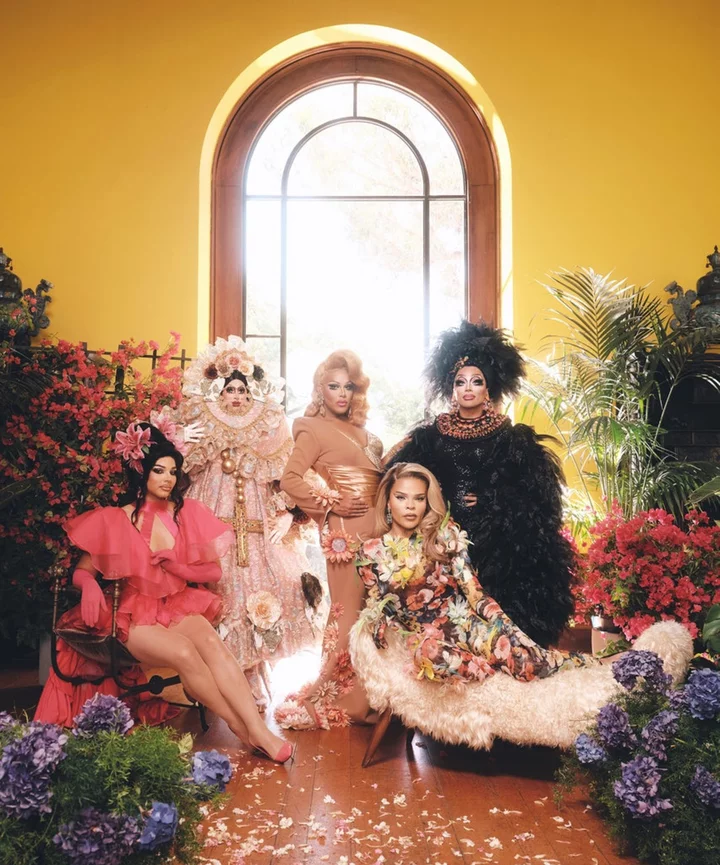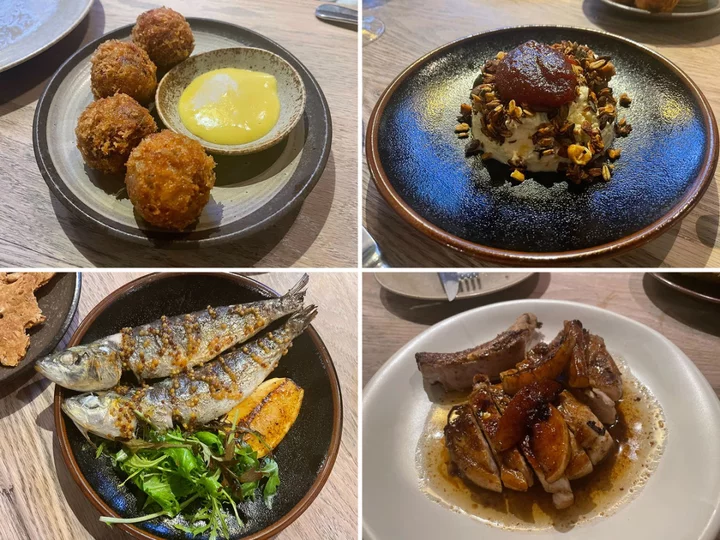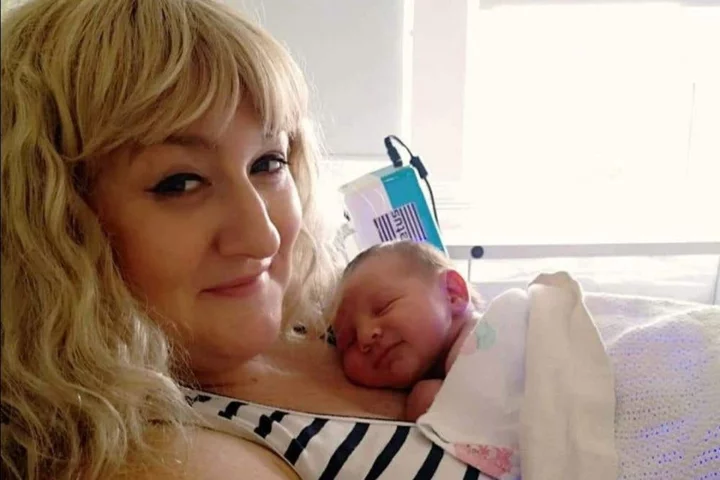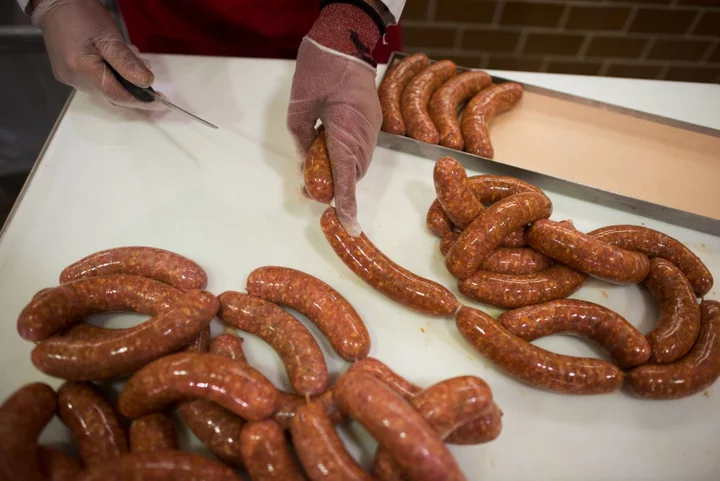It’s no secret that Latines dominate television’s biggest drag platform, RuPaul’s Drag Race, with fan favorites like Valentina (S9, AS4), Miss Vanjie (S10, S11), and Jessica Wild (S2, AS8). Yet with so much Latine representation on the show, only one Latine has won the crown in the original series: Bianca Del Rio (S6), almost 10 seasons ago. As more Latine and Latin American drag queens grace our screens with adaptations like Drag Race México and Drag Race Brasil, is it enough to overcome the lack of Latine winners on the main show?
Throughout its history, RuPaul’s Drag Race has showcased incredible Latine talent who have made a mark on the series. In Season 1, we watched Nina Flowers from Puerto Rico place top two in the competition and win Miss Congeniality. For better or worse, the first two contestants to ever lip sync were also Latines: Jade Sotomayor and Rebecca Glasscock.
Since then, we have watched other Latine queens compete on the Emmy Award-winning show, including but not limited to: Carmen Carrera, Yara Sofia, Delta Work, Kenya Michaels, Alisa Summers, Roxxxy Andrews, Monica Beverly Hillz, Lineysha Sparx, Adore Delano, and many more. With a strong early roster of Latine drag queens, we’d hoped at least someone else would have secured the crown like Del Rio.
Technically, Del Rio’s successor, Violet Chachki (S7), who is of part Ecuadorian descent, could count toward the Latine reign. However, she doesn’t identify as Latina. Even among other Latine drag queens, ethnicity and culture pose a challenge. Del Rio tells Refinery29 Somos about a time she read online that there “[needed] to be a Hispanic winner on Drag Race.” Someone else replied, “Bianca won.” Another person disputed, “She’s not Hispanic enough.”
“As more Latine and Latin American drag queens grace our screens with adaptations like Drag Race México and Drag Race Brasil, is it enough to overcome the lack of Latine winners on the main show?”
Francisco GutiérrezAt a photoshoot celebrating LGBTQ Herstory and Latine Heritage Month in Los Angeles in August, Del Rio, who is both Cuban and Honduran, exclaimed: “WTF does that even mean? Am I supposed to wear a sombrero or am I supposed to have an accent? What do you mean ‘not enough’ or the ‘right amount?’” Del Rio’s parents, who migrated separately to the United States in 1959, met and finished high school together, got married, and raised five children in New Orleans, Louisiana. “This is my story. I don’t deny my [Latine] heritage, and I don’t consider it shameful,” Del Rio elaborates.
Crystal Methyd (S12), who is half Mexican, is similarly proud of her background. Raised in Springfield, Missouri, by a “little tiny woman who always [did] the most,” Methyd credits her mother and the other Latina women in her family with influencing her drag.
“She’s a garage sale diva,” Methyd says about her mother. “Growing up, her closet was hella full, and I used to wear her clothes without her knowing.” It wasn’t long before Methyd outgrew her mother’s wardrobe and moved on to playing with her makeup and jewelry. “Most of my aunts are beauty queens: full face, hair done, always presenting ‘woman,’” Methyd adds.
When asked directly why many Latine drag queens haven’t won RuPaul’s Drag Race, Methyd, one of the runners-up in her season, jokingly responded: “They should just cast [me again]. They always want to save [Latines] for All Stars because we give such good television.”
“They always want to save [Latines] for All Stars because we give such good television.”
Crystal MethydInstead of crowning them in their original seasons, the show has seemingly invited Latines to return on other seasons for entertainment value. Kandy “the Producer” Muse (S13, AS8) is a great example of how Latine drag queens make for “good TV.” During her first season on the show, Muse dominated the competition with her unfiltered, IDGAF attitude. She produced some of the most memorable moments on the season, including her quarrel with competitor Tamisha Iman during the spin-off, Untucked, earning the now 27 Primetime Emmy Award-winning series an Emmy Award for Outstanding Unstructured Reality Program. Muse, despite making it to the top two on Season 13, did not win. Similarly, on All Stars 8, she placed second with Puerto Rican drag queen Jessica Wild behind her in third.
Additionally, Latine drag queens have another hurdle to overcome: pushing past the exotic and spicy label thrust upon them. From emphatically pronouncing Latine queens’ names to encouraging them to adopt heightened personas, the show often reinforces racial and ethnic stereotypes, like the time RuPaul underestimated Yara Sofia’s ability to perform outside of her ethnicity. When Sofia chose to impersonate the late Amy Winehouse during Snatch Game in Season 3, RuPaul responded with, “You’re from Puerto Rico. [Amy] is from England. How are you going to do that?” On the other hand, when Latine queens lean into behavior more commonly associated with their culture (or perceived culture) — like in the case of Salvadoran contestant Miss Shuga Cain (S11) who imitated the legendary Spanish actress and singer Charo during the same challenge — the show rewards them.
Alexis Mateo (S3, AS1, AS5) tells Somos that Latines are instantly fan favorites because they bring the “adobo” to the competition. However, Mateo’s biggest observation as to why Latines haven’t beat out their competition is because of the cultural and linguistic barriers some of them face. “Everything that we celebrate in Drag Race centers American culture, but we forget that [Latines] also represent America,” Mateo says.
“Latine drag queens have another hurdle to overcome: pushing past the exotic and spicy label thrust upon them.”
FRANCISCO GUTIÉRREZMateo went home during the “Charles Family Backyard Ball” challenge in All Stars 5. During the episode, each all-star portrayed an original character, a “country cousin” of RuPaul, and designed an outfit made from materials found in a garden. The cultural differences led to Mateo’s elimination. “In Puerto Rico, we don’t do barbecues in our backyards,” she says. “It’s a different cultural celebration from ours.”
Fellow Boricua April Carrión (S6) agrees with Mateo and claims that RuPaul’s Drag Race has only embraced Latine culture on a surface level. “Drag Race doesn’t adapt to our culture, so we have to adapt instead,” Carrión says in Spanish. For Carrión, who placed fourth in her season, the world seems to minimize Latine culture. “We are generally the working class; we come from the bottom,” she says. “But we celebrate each other, and 10 years after competing on Drag Race, I’m still working and being a spokesperson of the Latine community.”
This is sorely necessary as Carrión remains frustrated with how Drag Race highlights Latine participants’ cultural inexperience and linguistic limitations. “[Despite these barriers], we’re always on top,” she boasts. “The work speaks for itself.” It’s why, according to Carrión, Latine queens often make it far in the competition.
“Everything that we celebrate in Drag Race centers American culture, but we forget that [Latines] also represent America.”
Alexis MateoMany Latine queens have made it through the season. Ginger Minj (S7, AS2, AS6), who is Puerto Rican and Irish, made it to the finale twice. So did Roxxxy Andrews (runner-up); Alexis Mateo (top 3); Jessica Wild (top 3); Adore Delano (runner-up); Kandy Muse (runner-up twice); and Crystal Methyd (runner-up). Despite not taking home the crown, many of them left a lasting impression on fans, including Miss Vanessa “Vanjie” Mateo who had a huge impact on fans when the judges eliminated her first on Season 10. After competing on the show, Vanjie went viral and received a second invitation to compete for the title on Season 11.
Vanjie has also appeared on other spin-offs, including RuPaul’s Secret Celebrity Drag Race, RuPaul’s Drag Race: Vegas Revue, Canada’s Drag Race, and RuPaul’s Drag Race All Stars. “Y’all can count me as a winner,” Mateo laughed, flaunting that celebrities like Rihanna and Lizzo know who she is.
Earlier this year, Lizzo invited Vanjie and other drag queens to join her on stage at her Knoxville, Tennessee show to protest a former law restricting drag performances. Vanjie, who is one of the most-followed queens from Drag Race on social media (1.5 million followers on Instagram alone), was also on this year’s Hulu’s Drag Me to Dinner along with her drag mother, Alexis Mateo.
“You don’t have to win to find success,” Del Rio says with a wink. “It’s not so much about winning the title; it’s what you do with the platform.” Del Rio has now hosted the widely viewed after-show, The Pit Stop, for the last two consecutive seasons among other accomplishments. Her fellow Drag Race hermanas have walked New York Fashion Week, received brand partnerships and endorsements, and landed hosting gigs, like in the case of Valentina and Lolita Banana — the first Mexican-born contestant and a Drag Race France alumna — who now host Drag Race México. Kandy Muse is also hosting her own show, Inside the Producer’s Studio, and can brag that her biggest fan is none other than RuPaul himself.
“You don’t have to win to find success. It’s not so much about winning the title; it’s what you do with the platform.”
Bianca Del RioThe legacy of these Latine drag queens is already inspiring the next generation. It is evident in later seasons, with lip sync assassin Jorgeous (S14); the incredibly funny Selina Estities (S15); the high-energy jump roping Jax (S15); and the unforgettable runner-up Mistress Isabelle Brooks (S15).
Mateo’s biggest advice to young Latines who want to start drag is to be their authentic selves and to make a brand out of it. “I would love for young [Latines] to reconnect with their heritage and learn who they are,” Mateo says. Carrión advises young Latines to have fun and enjoy the art of drag. She affirms, “Drag is not that serious.” Del Rio highlights that there is no right or wrong way to do drag. In fact, she encourages young Latines wishing to start a career in drag to try everything: “It’s like an orgy; try it all. That’s how you know what you like and don’t like.”
Although there is no official confirmation, there are rumors about Latine contestants in the forthcoming Season 16, including Morphine Love Dion, Megami, Geneva Karr, and Kandy Muse’s drag daughter, Xunami Muse. As fans eagerly await information about the newest cast, we can only hope the rumors are true. We’ll be rooting for our next Latine winners because no matter if they get a crown out of it, they have already won.









